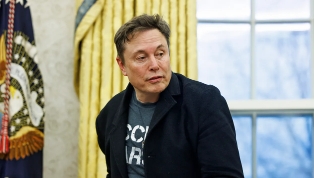
The White House said Monday that Elon Musk is technically not part of the Department of Government Efficiency (DOGE), even though the tech billionaire is said to be leading its sweeping cost-cutting efforts.
Musk is an employee of the “White House Office” and serves as senior adviser to the president, according to a court filing from Joshua Fisher, director of the White House Office of Administration.
The Tesla and SpaceX CEO is not an employee of the U.S. DOGE Service or the U.S. DOGE Service Temporary Organization, both of which are separate from the White House Office, according to Fisher.
He is also not U.S. DOGE Service administrator, the position that leads DOGE, as laid out in President Trump’s executive order last month establishing the service.
“In his role as a Senior Advisor to the President, Mr. Musk has no greater authority than other senior White House advisors,” Fisher said in his declaration to the court.
“Like other senior White House advisors, Mr. Musk has no actual or formal authority to make government decisions himself,” he continued. “Mr. Musk can only advise the President and communicate the President’s directives.”
Fisher compared Musk’s role to that of Anita Dunn, who served as a senior adviser to former President Biden.
His declaration comes as part of a lawsuit brought by 14 states against Musk, Trump and DOGE last week, arguing that the government role of the world’s richest person is unconstitutional because he has not been confirmed by the Senate.
“Mr. Musk’s seemingly limitless and unchecked power to strip the government of its workforce and eliminate entire departments with the stroke of a pen or click of a mouse would have been shocking to those who won this country’s independence,” the states wrote.
“There is no office of the United States, other than the President, with the full power of the Executive Branch, and the sweeping authority now vested in a single unelected and unconfirmed individual is antithetical to the nation’s entire constitutional structure,” they continued.
The states initially asked the court to bar Musk and the DOGE team from taking a wide range of actions, including making changes to government contracts, regulations, personnel or the disbursement of public funds, as well as receiving access to or altering data systems.
However, they have since narrowed their request, seeking to block Musk and DOGE from accessing data systems and firing, furloughing or placing employees on involuntary leave.
The Department of Justice contends that Musk and DOGE do not have any additional authority to make governmental decisions.
Instead, the Trump administration argues the states are “conflating influence and authority,” emphasizing that “an advisor does not become an officer simply because the officer listens to his advice.”